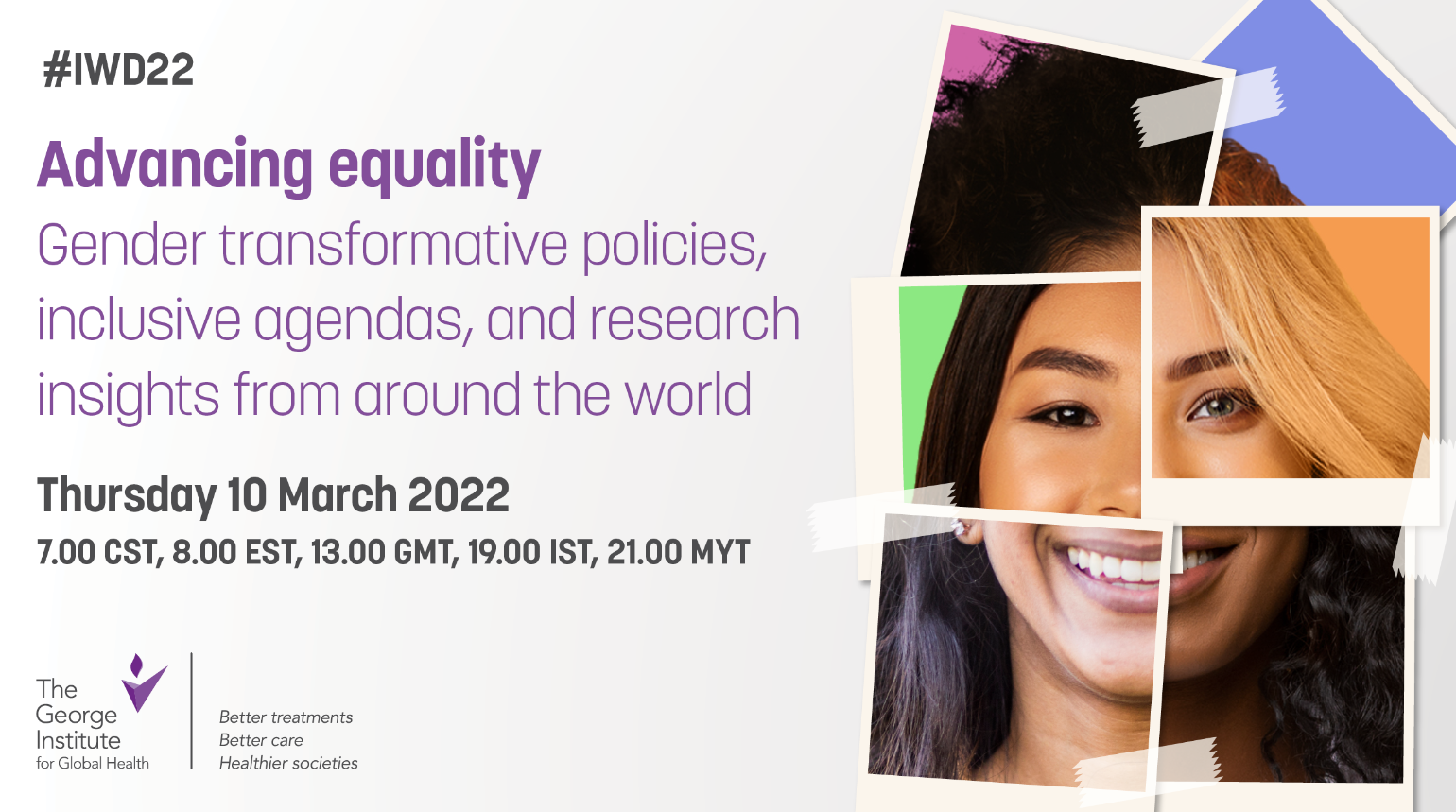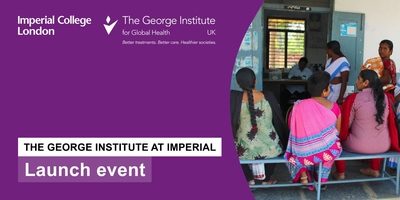In 2020 Imperial College London and The George Institute for Global Health embarked on a new collaboration to drive the development and evaluation of innovative and sustainable global health systems. Following a successful initial collaboration, a new five-year commitment has been agreed, that will focus on health systems, women’s health and multimorbidity.
The collaboration will build large-scale, transformative research initiatives supporting progress towards universal health coverage and sustainable development by addressing the greatest challenges to health globally.
Professor Jonathan Weber, Dean of Imperial’s Faculty of Medicine, said:
“I am extremely pleased to see the continuation of our collaboration with The George Institute, and am excited about its vast potential to drive improvements to health systems and the wellbeing of people around the world.
“From women’s health and clinical trials, to training the next generation of students and addressing the challenges of multimorbidity, I look forward to great success together during the years ahead.”
Professor Robyn Norton, co-founder and Principal Director of The George Institute for Global Health, said:
“We are delighted at the evolution of our collaboration. Working together, we believe there is potential for seismic change to the health and lives of individuals and communities globally.
“We look forward in the coming months to making several professorial-level appointments in each of the three research areas of focus to strengthen our work together.”
Innovative health systems
The COVID-19 pandemic has illustrated the urgent need to develop evidence-based strategies that enhance the effectiveness of health systems. Around the world, enormous challenges are faced in delivering essential care, particularly for those living in disadvantaged circumstances.
Through the collaboration, researchers with expertise across a broad range of disciplines will work with policymakers, healthcare providers and communities to develop and evaluate ways to produce sustainable improvements in health systems and services, so improving health and care for all. This will include a focus on frugal innovation and disruptive entrepreneurship that supports improvements to the health of populations in resource-poor settings.
Professor Ian Walmsley, Imperial Provost, said:
“This new five-year partnership with The George Institute will complement Imperial’s strengths to build on our already significant profile in public and global health.
“Our organisations have aligned aims and ambitions to improve health through research and innovations, and we will together see the opportunity to have significant impact in developing sustainable, innovative global health systems that populations around the world need to thrive.”
Improving women’s health
By working with colleagues across Imperial, the collaboration will be convening a new, transdisciplinary network to address the major health issues facing women and girls across the globe. This will target non-communicable diseases and injuries (NCDIs), and under-studied and under-resourced conditions that specifically affect women.
This work will take a multi-faceted approach to improving women’s health through research, policy, and advocacy, with a particular focus on low- and middle-income countries and under-served populations in high-income countries—including those of North West London, given the equity challenges these communities face.
By harnessing the collective strengths of researchers at Imperial and The George, in collaboration with global peers, this significant programme has the potential to produce a ‘quantum leap’ in the health of women and girls worldwide.
Professor Deborah Ashby, Director of Imperial’s School of Public Health, said:
“Our initial partnership with The George Institute for Global Health over the past year has been incredibly successful and fruitful.
“I am delighted to see this relationship extended and enhanced by drawing in expertise from across Imperial College to tackle some of the world’s most pressing health issues.”
Understanding multimorbidity
The global burden of multimorbidity—where individuals are affected by multiple diseases—is one of the most significant challenges to the sustainable health agenda and will be a core target of the collaboration.
A College-wide initiative will be established, dedicated to world-class research to prevent and treat these most damaging clusters of NCDIs, and communicable diseases.
Professor Stephen MacMahon, Principal Director of The George Institute for Global Health, said:
“In most countries, including the UK, a large proportion of the adult population suffers from more than one disease, and the greater number, the greater the risk of premature death.
“The Covid-19 pandemic illustrates this clearly. For example, among people infected with Covid, the risk of death was around 50% higher among those with diabetes and more than 100% higher among those with diabetes and other chronic conditions such as heart disease.
“This unique research programme is specifically designed to develop effective strategies for the simultaneous prevention and treatment of multiple diseases.”
The George Institute at Imperial
The George Institute is based in the Translation and Innovation Hub on the White City Campus, a region that is quickly emerging as the capital’s newest hub for life sciences research and innovation.
The team will also work with the Imperial Clinical Trials Unit to expand the number and scope of high-quality randomised clinical trials seeking to answer urgent questions facing healthcare providers globally.
Planetary health and the links between the environment and human health will be another priority focus. Imperial’s existing world-class research, training and innovation will be augmented with The George’s expertise in NCDIs, in working with partners in low- and middle-income countries, and its focus on developing and evaluating innovative solutions to address global challenges.
The collaboration will also enhance Imperial’s world-leading educational offering by providing students with opportunities to work in multicultural, international teams, and across disciplinary boundaries. It will develop students with the skills in innovation required to create solutions to complex real-world problems.





















